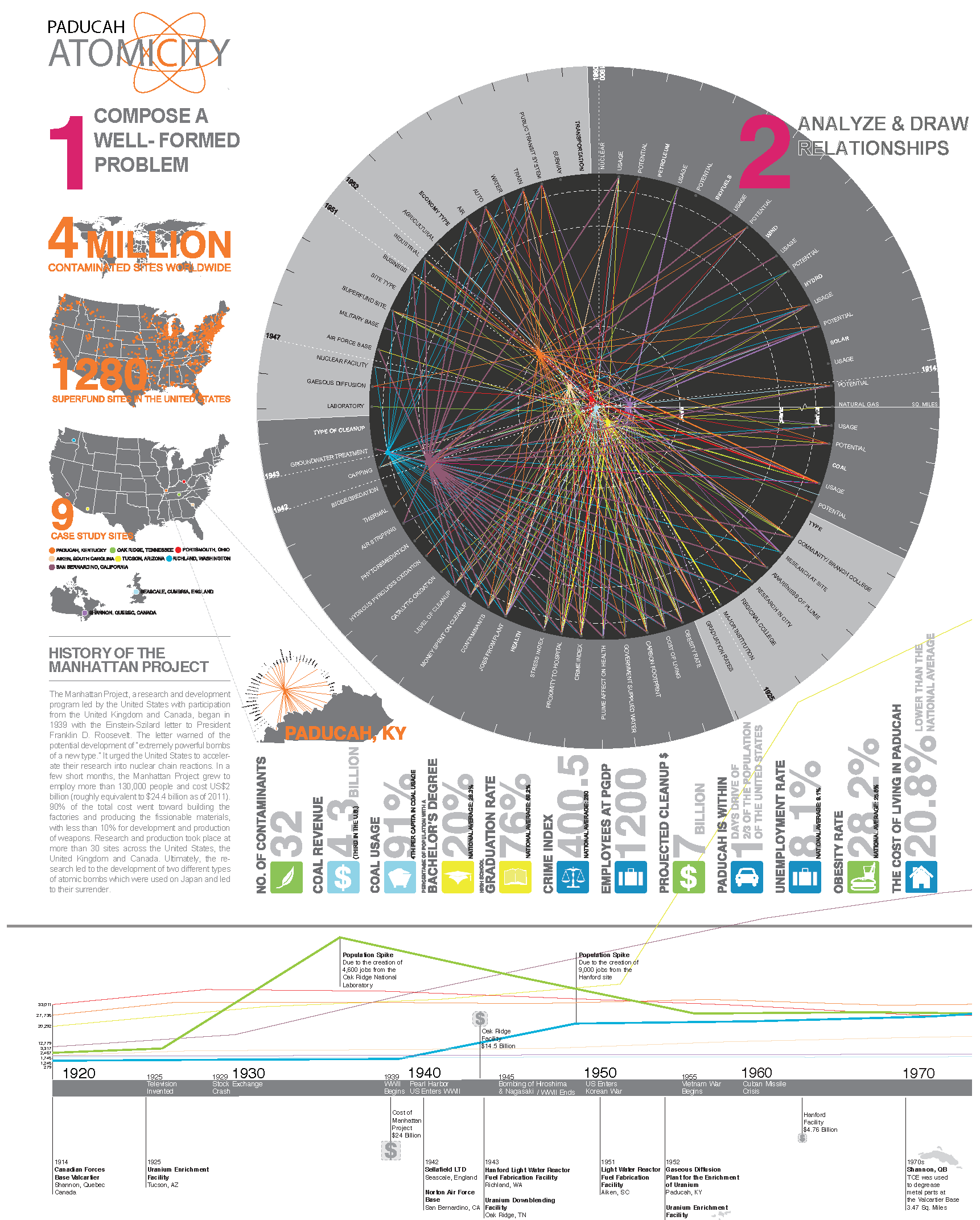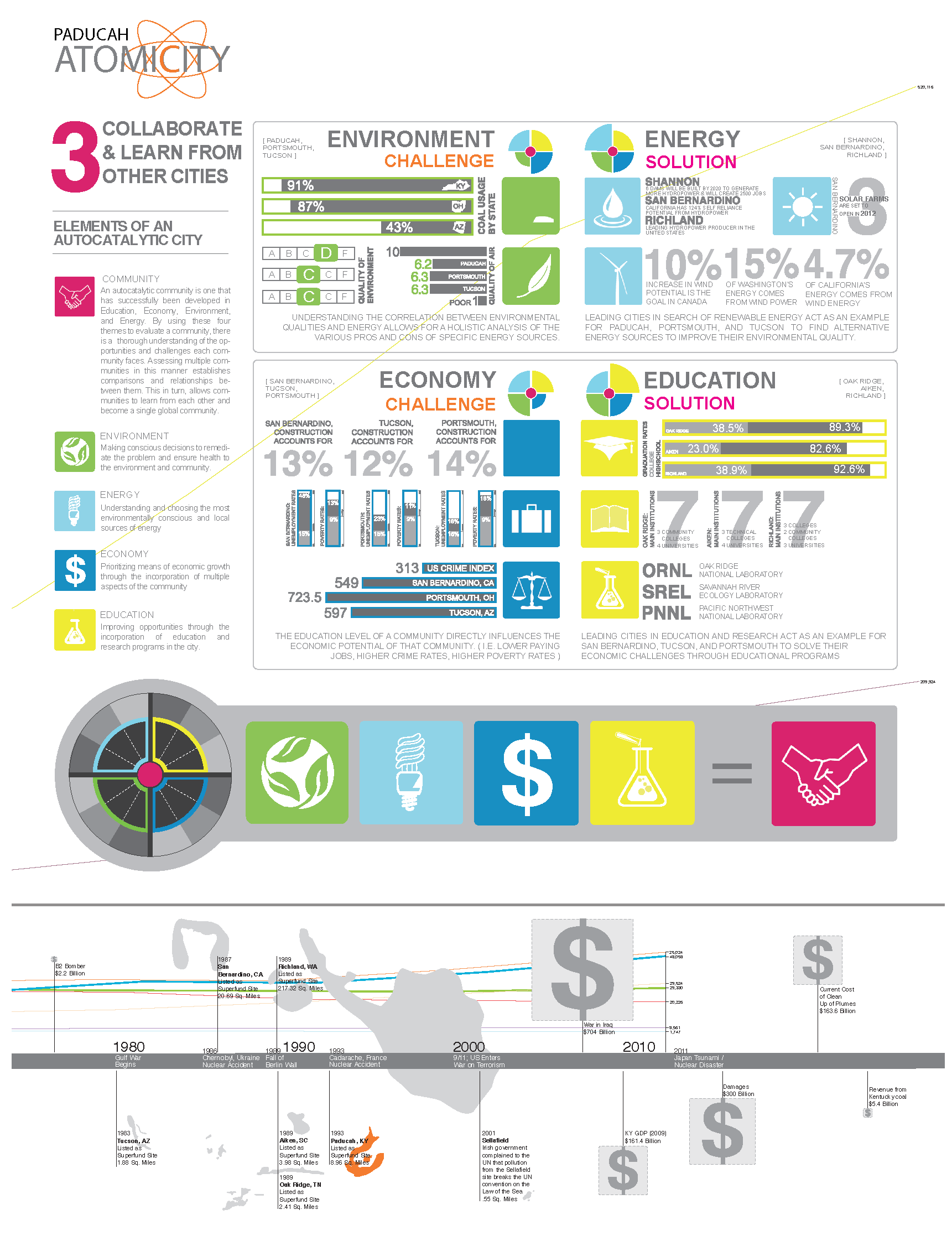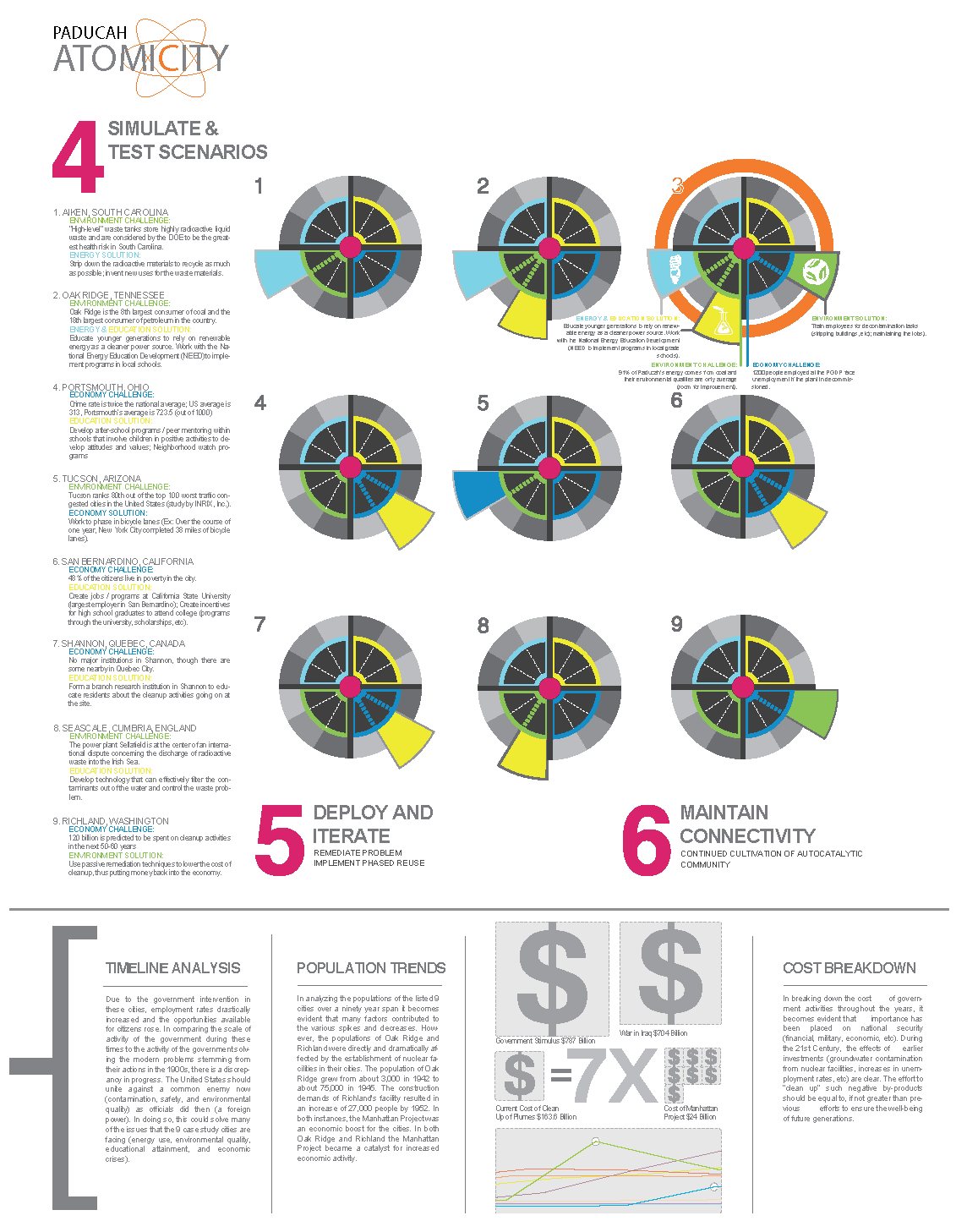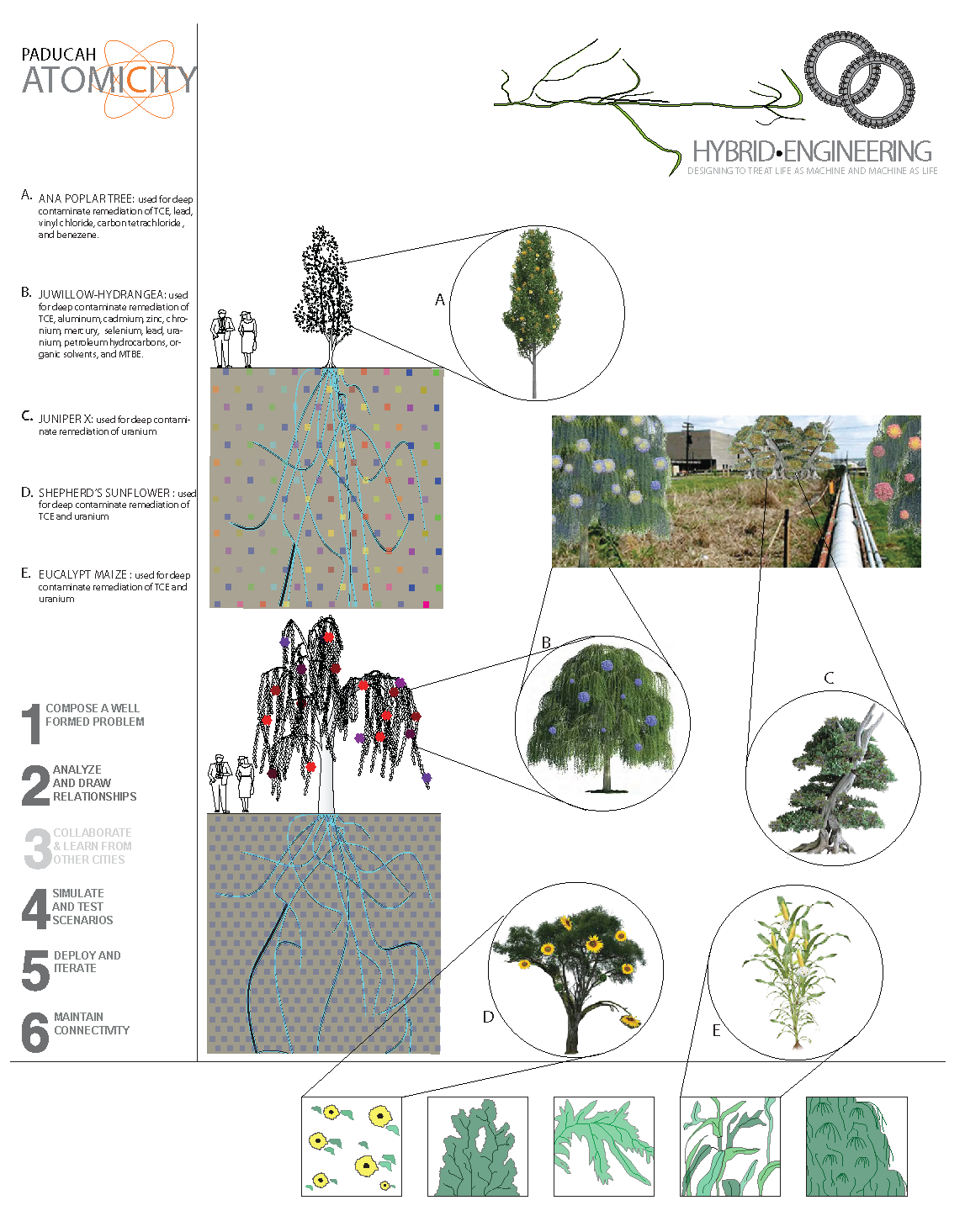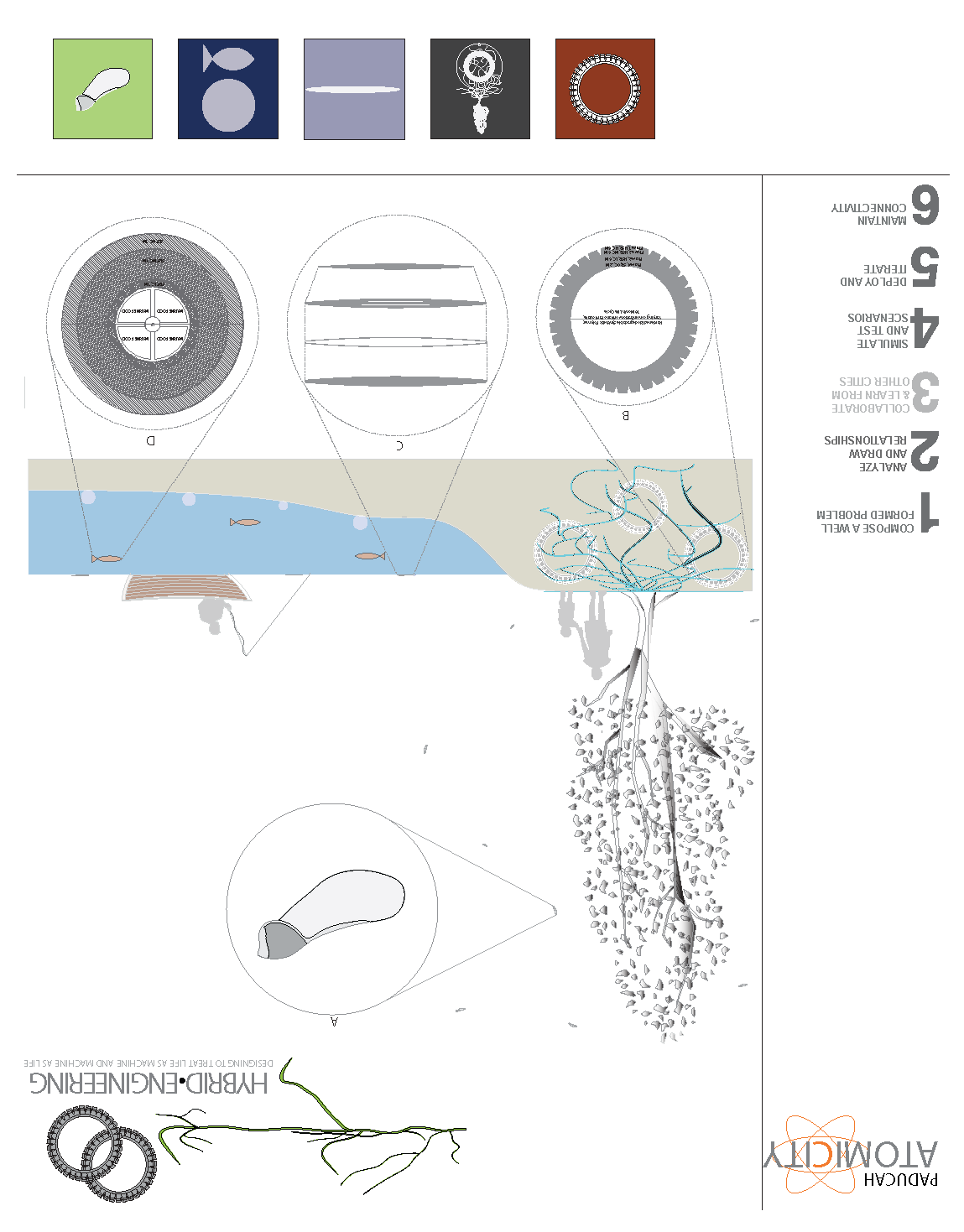Paducah
Plus
FALL 2011: ATOMIC CITIES STUDIO II
The Paducah Plus studio built upon the proposals and provocations of the Manhattan Redux studio. Students worked to remain confident in the face of the enormous challenges involved in imagining remediation and restoration of the PGDP site, proposing a hopeful economic future for Paducah and the western Kentucky Region. Not only were students working to address PGDP issues, they were laboring to articulate a potential new role for architects, and starting to believe there is as much design in decommissioning and decontamination as there is in conventional architectural production.
Objectives: The Paducah Plus studio was given three charges. The first was to expand the hundred-year plus timelines and to go further in developing a strategy from the evolution of the site from a dirty, dangerous past to a clean, safe future. Next, they were to expand upon proposals for future-use of the super-sized buildings present on the site. If they could be decontaminated, for what program might their size suit them best? Finally, the studio was to examine the particulars of Paducah relative to the scores of legacy waste cities and sites worldwide. What do all of the cities that bear the brunt of Cold War weapons manufacture have in common? What could they learn from one another towards a more hopeful
future?
Outcomes: From a thorough analysis of several cities enduring legacy defense waste issues, the studio developed a working hypothesis: that to be healthy, any community must have a well-balanced meshwork of productive relationships involving simultaneously energy, environment, economy and education. From this observation the studio proposed a mixed use future for the PGDP site, comprised of clean energy production, a decontamination and remediation research and development facility, garden and food production greenhouses, and an institute of higher education. The idea was that operations on the site would focus on the remediation of the site itself, and that when successful, the knowledge gained could be applied to sites worldwide. Hopes that Paducah might become a global remediation technology center, or the “Silicon Valley of clean-up”, produced the studio’s motto: “The Problem Is The Solution”.
PROJECT TEAM
INSTRUCTOR / Co-PI:
Associate Prof. Gary Rohrbacher
Co-PI:
Associate Prof. Anne Filson
POST-GRAD RESEARCH ASSISTANTS:
Carolyn Parrish
Sydney Kidd
STUDENTS:
Maggie Clines
Lindsey Elza
Matthew Gannon
Seth Gover
Jenna Martini
Melvin McClure
Joseph O’Toole
Nathan Owings
Araba Prah
Taylor Steele
Carrie Wahl

